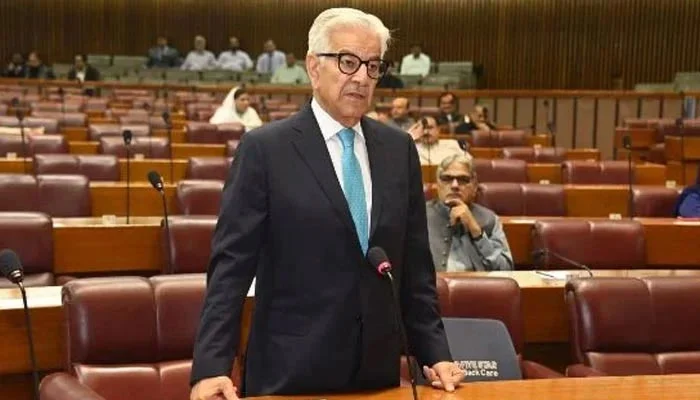In a significant and timely decision aimed at safeguarding the lives of thousands of Arbaeen pilgrims, the federal government of Pakistan has instructed the Balochistan administration to operationalize direct international flights from Quetta to Iran and Iraq. This initiative addresses longstanding concerns regarding the vulnerability of overland travel routes and marks a pivotal shift toward prioritizing air-based pilgrimage logistics.
The traditional route, which spans nearly 800 kilometres across rugged and often unsecured terrain, has recently come under heightened scrutiny due to intelligence reports highlighting the risk of extremist attacks on pilgrim convoys. Numerous pilgrims, often traveling in large groups by bus through remote stretches of Balochistan, have been exposed to threats of violence, extortion, and disruption. In light of these pressing dangers, the government acted swiftly to offer a secure alternative that not only reduces risk but also eases the travel burden for the faithful.
Defense Minister Khawaja Muhammad Asif, addressing lawmakers and media representatives, outlined the government’s commitment to replacing ground-based travel with scheduled air services, ensuring a safer and more dignified journey for Pakistani pilgrims. He announced that a pilot direct flight from Quetta to Najaf has already taken off, symbolizing a new beginning in Pakistan’s approach to managing high-volume religious pilgrimages. Building on this momentum, the government aims to scale up the service to include at least two flights per day, especially during the peak Arbaeen season when demand surges dramatically.
Recognizing the importance of flexibility and accessibility, the government has also moved to engage the private sector. Public tenders have been released inviting licensed private airlines to participate in this national effort by bidding on these newly approved pilgrimage routes. Both chartered and scheduled flights are permitted under this policy shift, opening up the opportunity for a wide range of airline operators domestic and international to contribute to this vital religious operation. The initiative is not just a matter of national logistics, but a symbolic gesture of state facilitation in honoring the religious sentiments of millions of Pakistani Shia Muslims.
The scope of planning extends beyond just air travel. Integrated coordination with foreign authorities, particularly in Iran and Iraq, has ensured that appropriate transit arrangements will be available upon arrival. Pakistani pilgrims landing in Najaf or Mashhad will benefit from pre-coordinated ground transportation links, visa support services, and reception arrangements managed in collaboration with host country institutions. This end-to-end facilitation model aims to provide a seamless travel experience from home to holy sites and back, without the stress, insecurity, and unpredictability often associated with long-distance road travel through restive zones.
This change in pilgrimage planning was also formally raised during the recent visit of the Iranian president to Pakistan, where religious cooperation and people-to-people connectivity were high on the diplomatic agenda. Iran has since responded positively by granting clearance for additional flights originating from Quetta, reinforcing the bilateral commitment to supporting safe religious mobility between the two nations. The decision is expected to set a long-term precedent for Arbaeen travel policies and may even influence planning for other pilgrimages, including Umrah and Ziyarat.
In his statement, Defense Minister Asif reiterated that the federal government is fully invested in the protection, comfort, and dignity of all Arbaeen pilgrims, whether they are traveling individually or in organized groups. He assured the public that authorities will monitor operations, review feedback, and introduce service refinements as required. The move represents a responsible and proactive response to both religious obligations and regional security dynamics. At the same time, it acknowledges the urgency of modernizing religious infrastructure to meet the demands of a changing world.
This initiative has been widely welcomed by religious leaders, civil society organizations, and families of pilgrims who previously had no alternative but to endure the physical and psychological stress of insecure overland travel. By embracing air travel as the preferred mode for large-scale pilgrimages, the government has demonstrated a progressive and compassionate approach that balances religious freedom with pragmatic safety measures.
As the first round of direct Quetta-to-Najaf and Quetta-to-Mashhad flights begins operation, the success of this model will likely determine its future expansion. If met with positive reception and operational efficiency, it could transform how Pakistan facilitates all major religious pilgrimages and eventually contribute to a broader national strategy of decentralizing international air access through regional hubs like Quetta, Multan, and Sukkur thus distributing development and infrastructure growth more equitably across provinces.
In essence, this initiative not only fulfills a spiritual and logistical need but also serves as a statement of national responsibility, inclusivity, and foresight. The safe journey of thousands of Arbaeen pilgrims is not just a seasonal challenge it’s a test of the state’s commitment to its citizens’ rights to worship in peace and security. With direct flights now operational, that commitment is being tangibly realized.



Comments (0)
No comments yet. Be the first to comment!
Leave a Comment